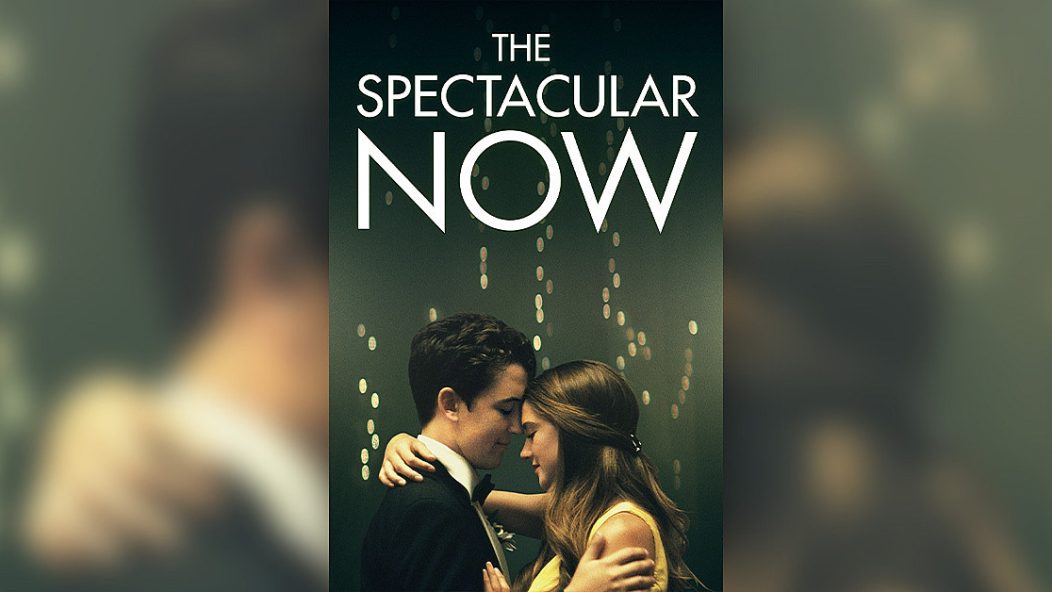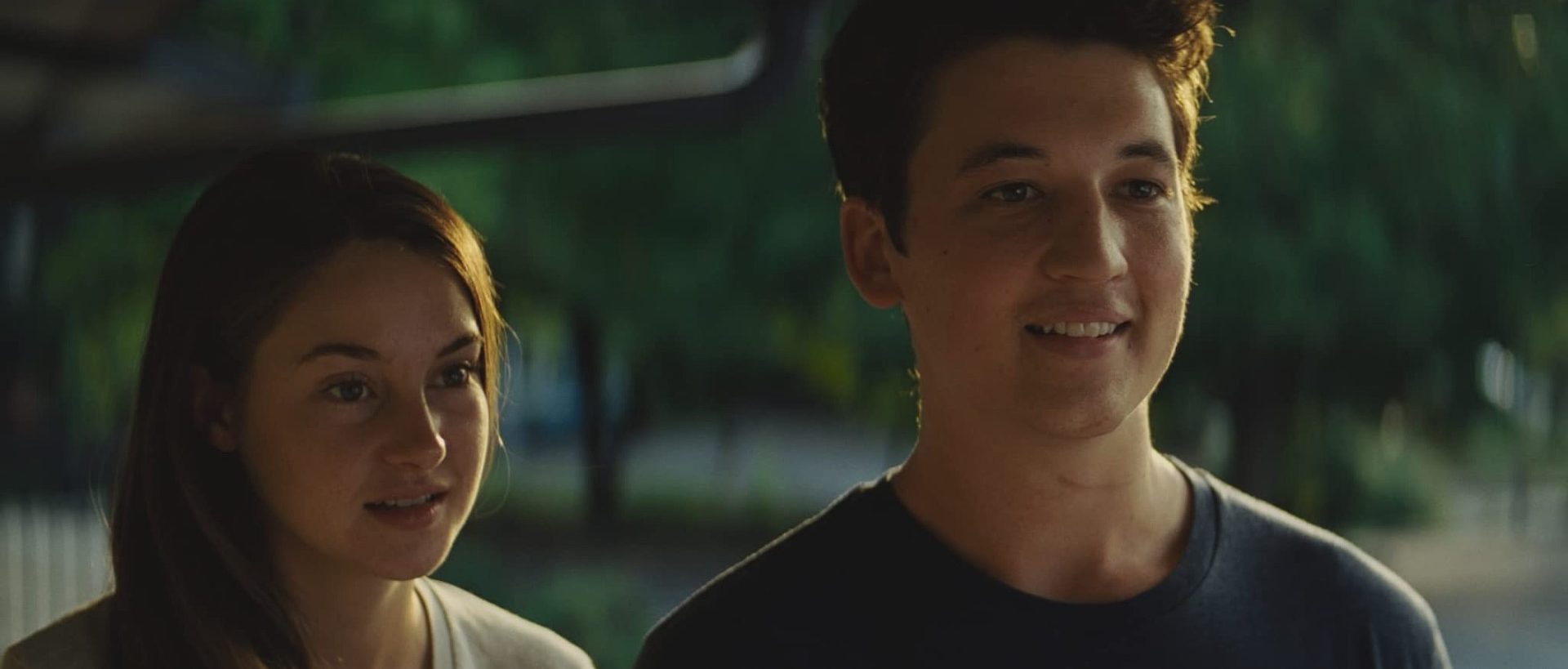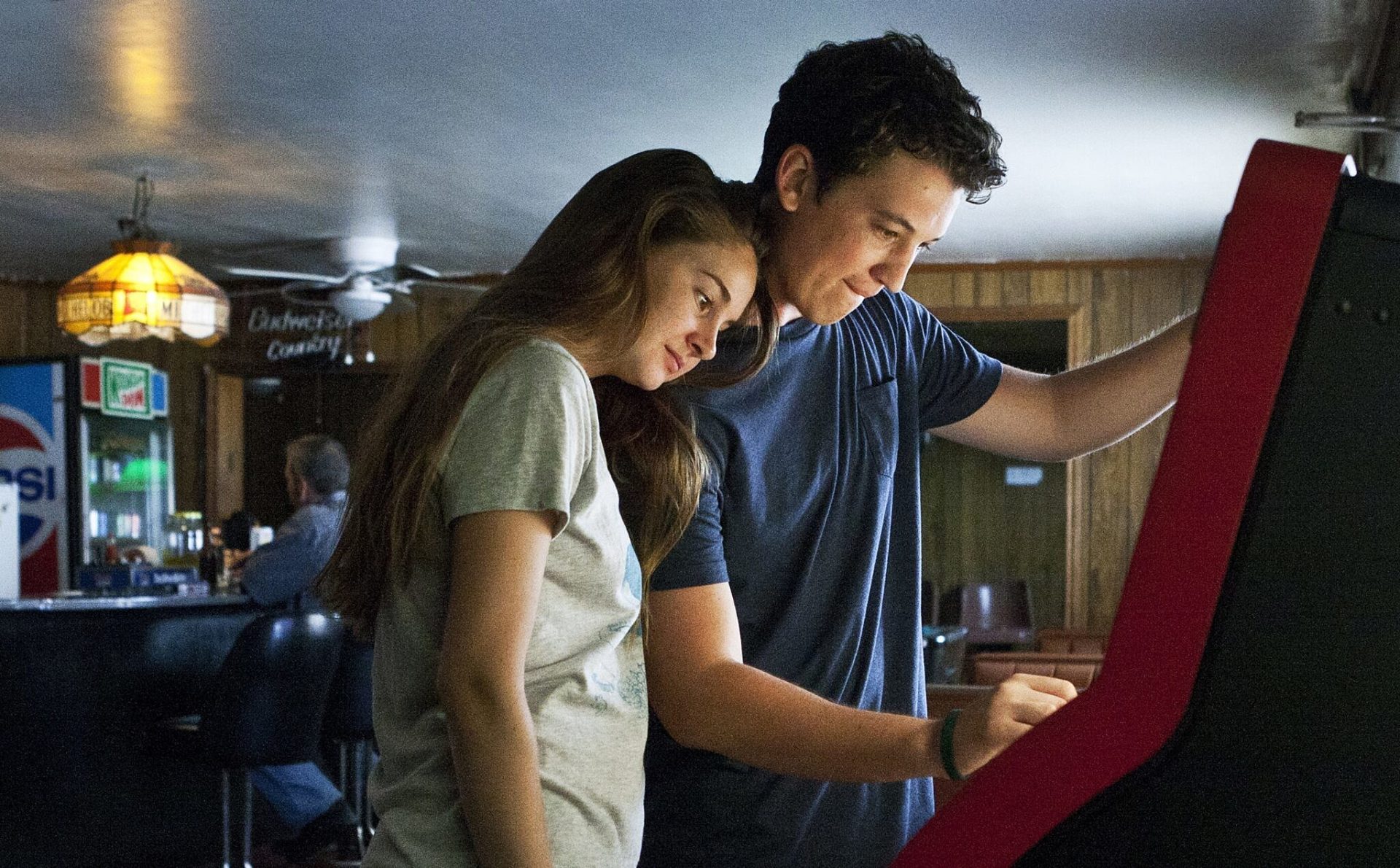
The Spectacular Now: 10 years later with director James Ponsoldt
Coming-of-age drama films oftentimes are fueled by cliche and lifeless moments unparalleled to the real world. Stereotyping characters is often ritual throughout these movies, yet the 2013 A24-produced film The Spectacular Now does everything to nurture its character development and truthfully defy the depths of problems facing adolescence today. Heartbreak, addiction, and familial damage are all too familiar for many as The Spectacular Now has built a legacy for itself as being one of the most frank and authentic films of its genre.
The film begins with Sutter Keely (Miles Teller) as a spiraling alcoholic who is uninterested in his future and the unhealthy relationships that have blossomed around him. It’s not until he meets the quiet and introverted Aimee Finicky (Shailene Woodley) that things in his life begin to unravel. To the end of the film, The Spectacular Now remains consistently emotional and poignant, ascribing the tension and uneasiness of finding oneself among the chaos of growing into adulthood alongside the growing pains of first love.
Read more: The evolution of Daisy Jones & the Six: how the cast and crew made a fake band real
Directed by James Ponsoldt, he recalls how committed he was to keeping the film true to its characters, saying he wanted to make something that was “honest, full of love, and respected all of the characters,” as well as staying within an “emotional reality.”
Growing up surrounded by theater, arts, and photography, Ponsoldt combined all of his interests together into his filmmaking. Ponsoldt learned to write in his youth as his fascination with cinema developed, and he continued to craft a style of impassioned writing over the years into his first film. When he began high school, he started to direct his own shorts and recalls it’s something that he “got obsessed with,” even after he began film school. “My first feature I had initially written as a short script, and I decided to expand it. That went to Sundance, and that’s how it started for me,” he recounts.

[Photo courtesy of A24]
Originally an award-winning novel written by author Tim Tharp, The Spectacular Now was readapted as a script by the writing duo Scott Neudstater and Michael Weber (500 Days of Summer). Ponsoldt learned of the novel and script and immediately resonated with the screenplay.
Resetting the location from the original script to his hometown of Athens, Georgia, the neighborhoods and landmarks of the film are all locations personally meaningful to Ponsoldt’s upbringing. He constructed an 80-page outline collage put together to build a worldview for what was to be his film. “A lot of the things [Sutter] wrestled with, I think that’s why it resonated with me,” Ponsoldt recounts. “I had hoped to and planned to write something about a kid who is 15 or 16 years old dealing with some of the themes such as substance abuse and complicated relationships with parents.”
What was the first day of filming like for The Spectacular Now?
It was hot. I remember we were shooting in Athens, Georgia, where my parents still live. It was like July and August… what I remember was the heat [Laughs.]. The sticky warmth of the summer, and how sweaty everyone was. You embrace it; you acknowledge and embrace the world you’re filming in. It was important for me that they looked and felt like real teenagers. In real life, people have sweat stains, acne, and all the things that they have… I wanted it to look and feel like what it would feel like for real kids.
Was it intentional to keep the setting ambiguous yet familiar?
My goal was to have something where if you’re from Athens, Georgia, it would feel hyper-local. You would know a lot of the locations. It would be meaningful to you in that way. For the vast majority of the audience that’s not from that place, I wanted them to feel something that felt universal. Athens is a college town. It’s where the University of Georgia is, but if you’re a teenager, you’re not necessarily experiencing the freedoms of being in college. You’re still living under your parents’ roof. These are kids that are growing up in the suburbs, and it’s not the big city. It’s not the middle of nowhere, but they still don’t have the freedom of adulthood, so they are living in the parameters of an adult world and are trying to carve out their own lives.
What was your involvement in the casting process like?
We auditioned hundreds of people for all of the teenage roles. For the role of Sutter, it really was hundreds of people. It was probably every male actor from the age of 15 to 25 or 26 that you could find in the English-speaking world. We auditioned everybody under the sun, and Miles really rose to the top. Shailene was amazing. I had seen her in The Descendants. The adult roles were actors that I really loved from different spaces… life is more fluid than just comedy or drama. It tends to live somewhere in between, so it was important for me for the film to contain all those emotional colors and that we had the right cast to support that.
Why does The Spectacular Now continue to garner such a strong fanbase after 10 years?
I think that there is something very universal to a lot of what is going on in the film. To a lot of the dynamics about friendship, about first romance, romance gone bad, relationship with parents who are overbearing, relationships with parents who are absent but you mythologize and turn out to be flawed, the dynamics of toxic relationships and toxic masculinity and self-medication; all these are things that are parts of the film that connect with people.
For me, I connect to stories when the heart of the story, when the central relationships, have a real truth and honesty between them. When films get those things right, as an audience member, I can project myself into them. I’m always trying to make something that is honest first and foremost and that dignifies and respects the characters. I think oftentimes stories about younger people can dumb down or patronize a little bit because they don’t allow for the complexities of an emotional inner life that adults receive. I tried to approach this as a complicated romance, not necessarily healthy between two complicated people [because] of the people around them.
From the small changes made from novel to film, the most transparent difference was the ending. Why was it important to explore a new ending?
I think that there was a hope to have an ending that is realistic, but where there is perhaps some open-endedness and moves more toward hope than hopelessness. At the end of the movie, you have two characters on screen who are not that old but certainly have history between themselves — complicated history. What they want from each other might be different things, and while we the audience might like the idea in some ways of them being together romantically, we also, depending on our own age and our own life experience as audience members, might know it’s not good or healthy. Or that if they reencountered each other 10 years later, maybe they will be different people and probably need to do some real soul-searching.
In the case of Sutter, he probably needs to do a lot of growing and self-examination before he’s going to be good for anyone else. Just because he drove to get the girl as it were doesn’t mean that they should be together. I’ve had a lot of people ask me, “What happens next?” I don’t mean to be cagey, but it’s like, “What do you think?” I do think it’s sort of a Rorschach test of toxic relationships. At the end of the film, they are two people who are 18 years old, and they have a lot of living to do. What comes next, who can say for sure?
What would you say to someone who feels like Sutter and can’t escape themselves, or what would you say to someone who can’t find themselves like Aimee?
In either case, I think you have to respect yourself and realize you are worthy of love. Loving other people and being in love, everybody has that dignity. How you carry yourself and how you treat other people and allow yourself to be treated is worthy of examination. Respecting yourself is really important, and just because somebody will give you attention doesn’t mean they deserve your attention or time.

[Photo courtesy of A24]
Do you have a favorite memory during the production of the film?
We shot it over a summer, and it really felt like camp in a way with the cast and crew. We were able to all pour our hearts into the film and spend time together, but on nights and weekends as well we all got really close, and I’m very good friends with a lot of people that I made that film with, and I still continue to work with them today.
What was your response to the film’s reception and release?
We tried to make something honest that we really cared about, and it was very humbling to see the way it seemed to connect with people in the room for that first screening [at Sundance], and then as we screened it, more people seemed to laugh with the movie and cry with it, and it was really exciting and gratifying and very inspiring. Growing up as a young film nerd, I would read [Roger Ebert’s] amazing reviews, and he was one of my favorite film critics. There’s a film festival in Illinois called the Overlook Film Festival — that’s Roger Ebert’s film festival that he would program himself. He picked The Spectacular Now for the festival, and he tragically died years before that festival happened, so the films that played that year in 2013 were the last films he selected, and the review that he wrote for The Spectacular Now is one of the very last reviews he wrote when he was alive, so all of it is deeply humbling and meaningful. To have the privilege of getting to make anything, and it is a privilege, is humbling, and to make something that connects with other people is something that everyone dreams about, and I just feel really grateful.
How has the transition been from filmmaking to series like the Apple+ original Shrinking?
I was really thrilled last year to be working on shows like Daisy Jones & the Six and Shrinking, and to be involved with them from the very beginning and to be able to shoot them near my home now in Los Angeles is really meaningful, and I’m excited to see how those shows connect with people. Most recently, I’ve been filming a brand-new Marvel show that’s totally different from anything that I think exists in the Marvel world, and I was working on that up until the Writers Guild strike began, and I’m in the Writers Guild and the Directors Guild. So right now I’m walking the picket line most days at a studio lot. I was and I will return to a film that I was in pre-production on that I was not planning to make till the end of the year, and hopefully that will stay on track when everybody gets back to work.








